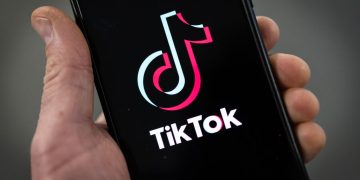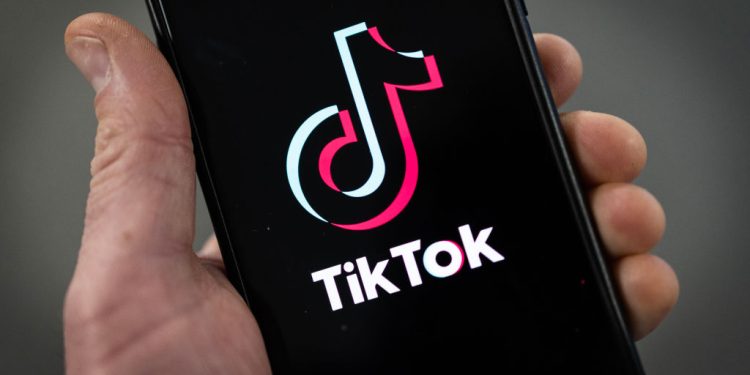As acts of antisemitism are soaring around the world following Hamas’ massacre in Israel, a natural question is: Why?
Why is it the country that just suffered the worst terrorist attack in its history is being seen as an aggressor and an evil country? How is it that Jews around the world are being targeted after 1,400 Jews were just slaughtered?
How is it that so many people apparently are not seeing and believing the horrors that took place on Oct 7? Or how can they think it was deserved?
The answer has to do in part with where people are getting their information. And it appears a fast-growing source of news for young people could be having a massive influence on how they view the Israel-Hamas war. It is a source there has been a lot of discussion about in recent years: TikTok.
Axios reported, “There have been nearly four times the number of views to TikTok posts using the hashtag #StandwithPalestine globally compared to posts using the hashtag #StandwithIsrael in the past two weeks, according to data from TikTok’s creator center.”
It explained there have been 285 million views worldwide of posts using the hashtag StandwithPalestine between Oct. 23-30, compared to 67 million views of posts with the hashtag StandwithIsrael during the same period.
The outlet also pointed out that 87% of the pro-Palestinian content is being viewed by people who are under 35, who probably do not have any memory of the moments or history that led to the present-day situation.
JUST IN – There have been nearly four times the number of views to TikTok posts using the hashtag #StandwithPalestine globally compared to posts using the hashtag #StandwithIsrael in the past two weeks, according to data from TikTok's creator center. – Axios pic.twitter.com/scbPuaGv9X
— Insider Paper (@TheInsiderPaper) October 31, 2023
That is a massive disparity in the type of content being viewed, and in a vacuum, or even if it is the first source someone sees, it can have a massive impact on users’ view of the war.
It must be stated there is a difference between pro-Palestinian posts and pro-Hamas posts. There are Palestinian civilians who are not terrorists and are suffering from Hamas’ actions.
However, this report does not distinguish between the two. And the #StandwithPalestine posts could very well include posts designed to promote Hamas’ propaganda and anti-Israel messages.
TikTok told Axios that it considers Hamas a terrorist organization and that it is banned from the platform. So that’s great.
But what do they think? Terrorists are going to set up an official Hamas account?
Unless TikTok has some intelligence apparatus that allows them to pinpoint who is a terrorist and ban them, the chances are high Hamas operatives are using the platform to spread their messaging.
And unfortunately, we’ve seen pro-Palestinian protests co-opted to spread horrendous antisemitic messages, such as signs that state “globalize the intifada” or “keep the world clean” with the Star of David in a trash can.
Not to scare the reader too much, but this report was only on the hashtag “StandwithPalestine.” Who knows what other hashtags are being used to spread darker and more sinister messages?
And going further down that rabbit hole, it would be unwise to assume viewers are only being shown benign content. We’ve seen how TikTok’s algorithm has fed users dangerous content.
One study from the non-profit Center for Countering Digital Hate (CCDH) found users can be fed content about suicide in an astonishing three minutes from the moment they sign up for the app. And within five minutes, they can be shown content promoting eating disorders.
So if the platform is spoon-feeding young people such harmful content, why should we have any trust it is not likewise feeding them antisemitic, hateful content about Israel and Jewish people once they watch some pro-Palestinian videos?
One minute they could be watching a video simply highlighting the plight of Palestinian civilians, the next they could be shown a video accusing Israel of committing genocide.
We’ve seen terrorist organizations weaponize social media to spread their messaging with great success before. With the rise of ISIS came a successful strategy by terrorists to use social media to promote their narratives. While ISIS is a husk of its former self, that does not mean other terrorist organizations like Hamas did not learn from or improve on its social media strategy.
And in this case, Hamas has it easier as they can manipulate reporters and the press by using their status as the governing body to claim some kind of credibility for their statements. We saw that with the explosion at a hospital in Gaza as news outlets cited “Palestinian officials” to falsely report Israel bombed a hospital.
So TikTok may not intentionally be promoting Hamas propaganda or antisemitic messaging. But it could be, and likely is, shoveling a whole bunch of lies and misinformation — at best — to a user base that is woefully ignorant of history and woefully unaware of who is behind the information being promoted by the accounts they’re following.


























 Continue with Google
Continue with Google